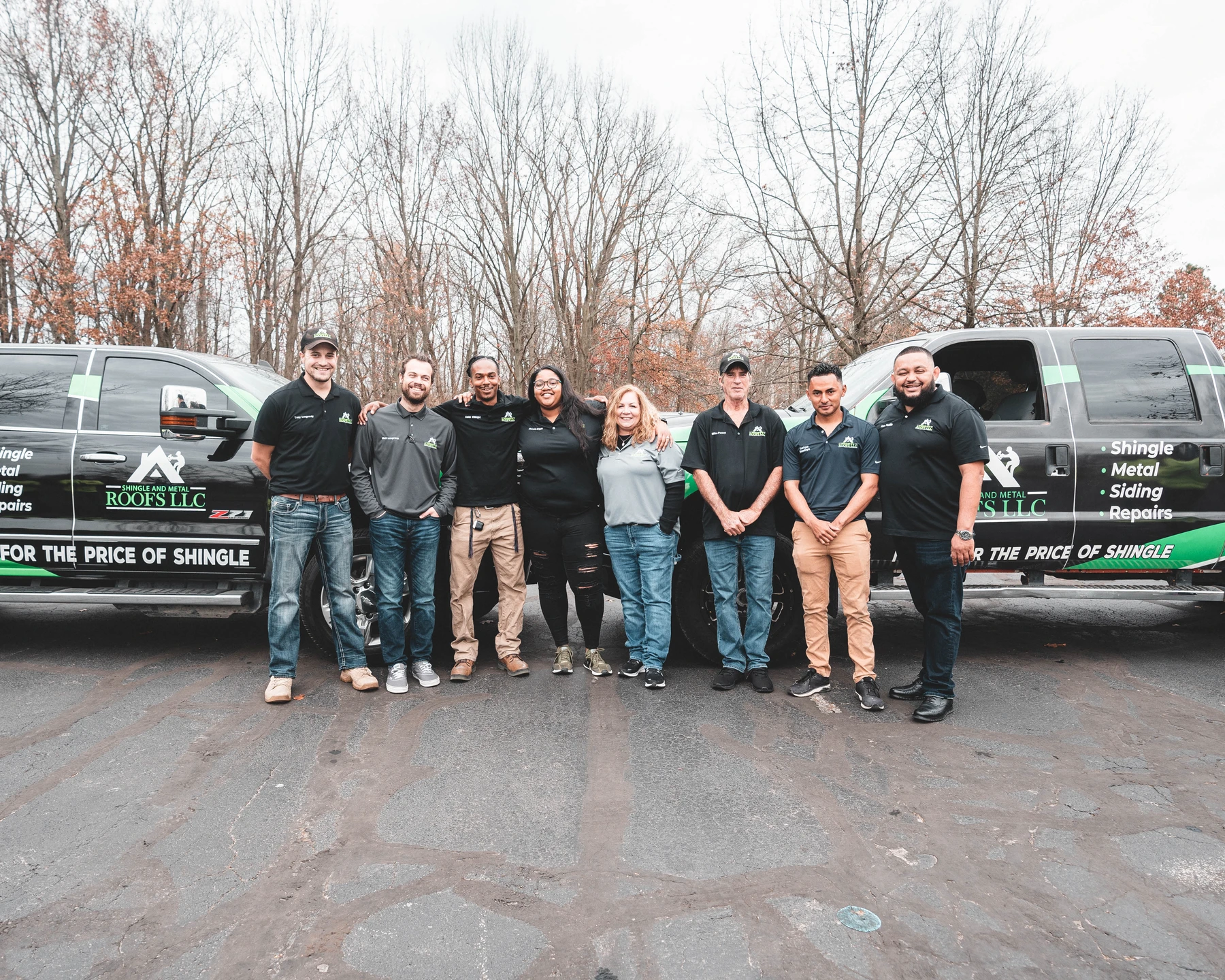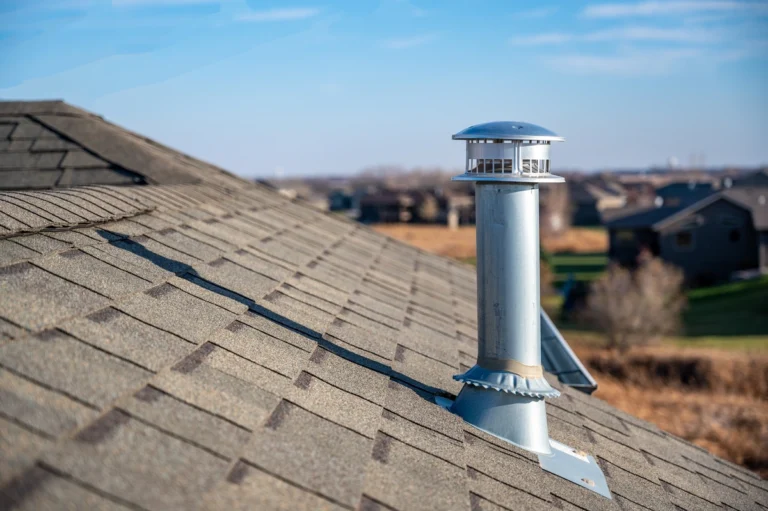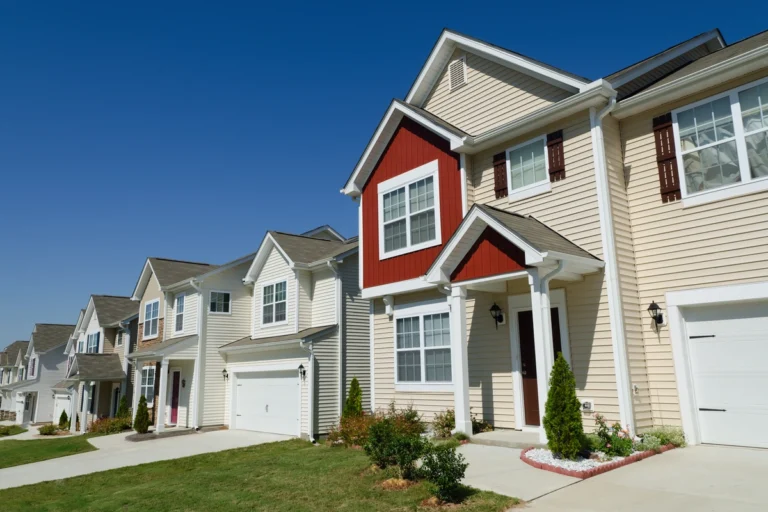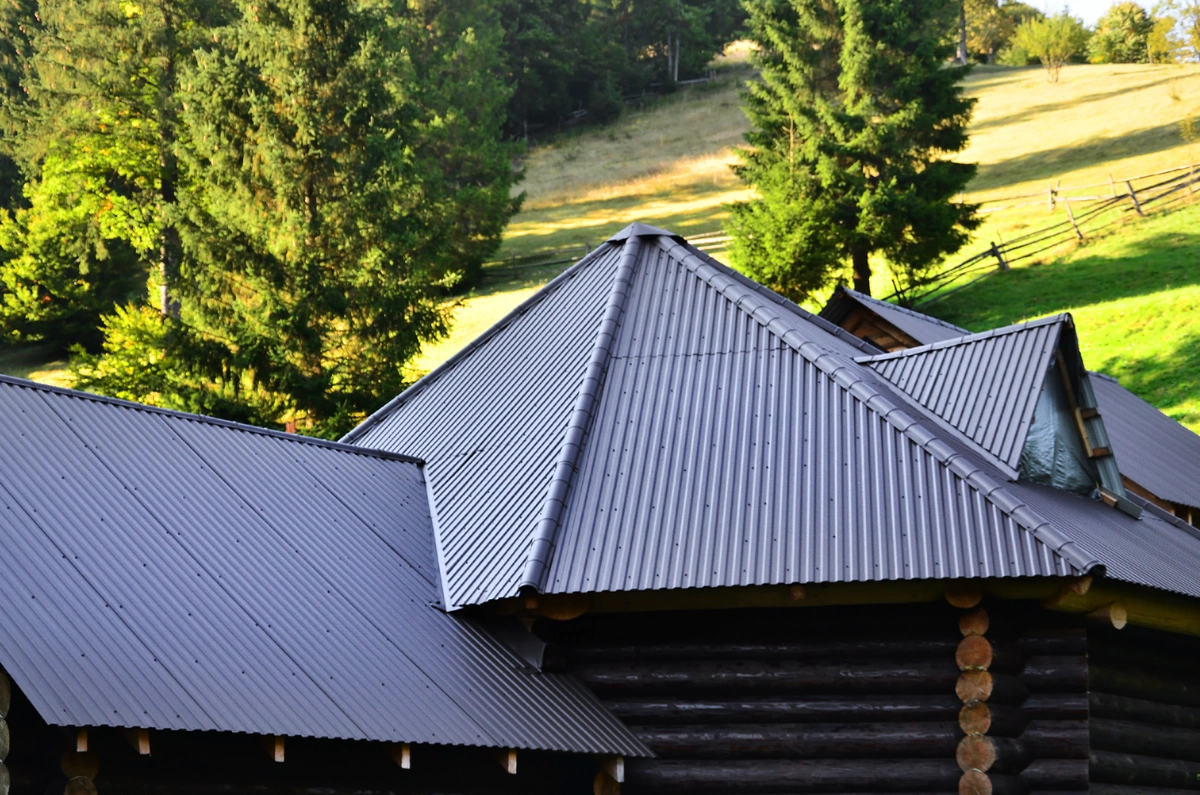
Metal roofs have become increasingly popular in roofing due to their durability and longevity. With an average lifespan of 40 to 70 years, many homeowners opt for metal roofs over traditional asphalt shingles, which typically last only 12-20 years.
In this blog post, we’ll also explore the factors that affect the life expectancy of metal roofing options in detail and provide you with up-to-date estimates for various types of metal roofing materials available today. Check with a professional roofing contractor for expert advice!
Factors Affecting the Lifespan of a Metal Roof
Several factors play a crucial role in determining the lifespan of a metal roof, including its material, installation quality, and environment. The various types of metals used for roofing – aluminum, copper, zinc, and steel – each offer distinct advantages and durability.
Another critical factor that impacts a metal roof’s lifespan is to make sure it is installed correctly by an experienced roofing contractor.
Additionally, external conditions like sun exposure and extreme weather affect the durability of your metal roof.
Lastly, regular maintenance contributes significantly to extending your metal roof’s lifespan. Timely inspections followed by necessary repairs protect the life of a metal roof.
Average Lifespan of Different Types of Metal Roofs
The average lifespan of aluminum roofs is around 40-70 years, galvanized steel can last up to 60 years, and copper roofs can last over a century.
Aluminum
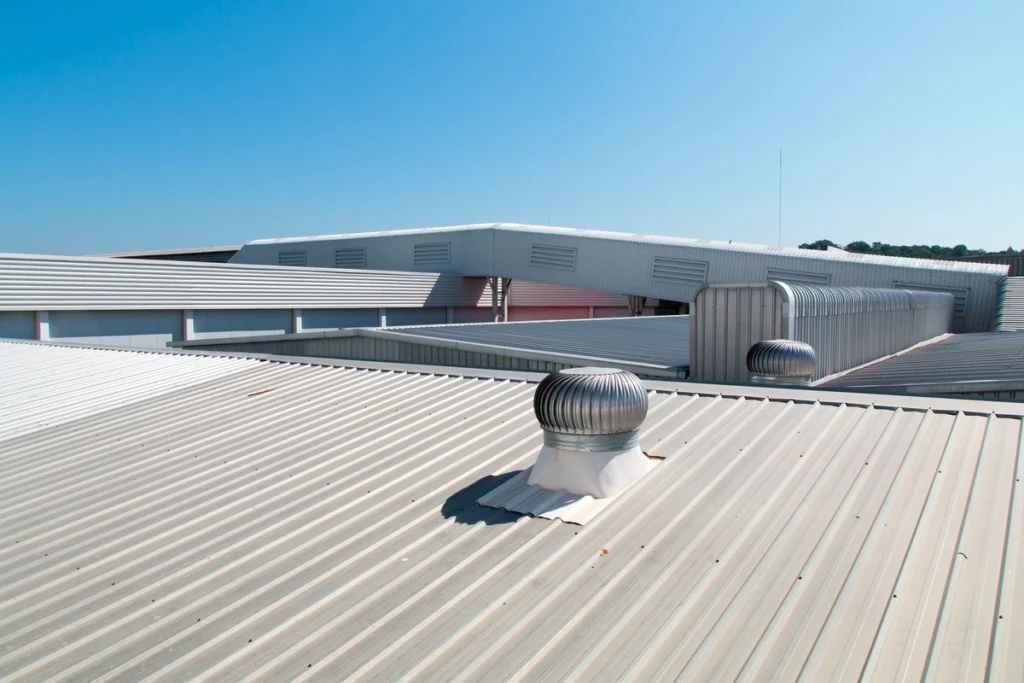
Aluminum is an exceptionally lightweight yet durable metal roofing material, well-known for its resistance to corrosion and ability to maintain its quality even in harsh environments.
With an impressive average lifespan of around 50 years, aluminum roofs consistently last longer than conventional asphalt, wood shingles, and other less durable materials.
For homeowners residing near coastal areas with highly corrosive atmospheres, aluminum roof systems offer a significant advantage due to their superior saltwater resistance compared to steel or copper roofing options.
Many architects and contractors highly recommend using an aluminum standing seam metal roof in seaside locations for their excellent performance under such challenging conditions.
Galvanized Steel
Galvanized steel is a popular choice for metal roofs due to its affordability, durability, and resistance to rust. Coating metal sheets can make this type of metal steel roofing with a layer of zinc, which helps protect the steel roof from water penetration.
Galvanized steel roofs offer several advantages for homeowners. For instance, they can withstand extreme weather conditions such as heavy rainstorms, hailstorms, or high winds without sustaining severe damage that might shorten their life expectancy.
Furthermore, they require low maintenance compared to other roofing materials while providing excellent energy efficiency benefits –thus aiding in reducing cooling costs during warm seasons.
Copper
Copper roofing is an excellent choice for those who want a long-lasting and attractive metal roof cost less. This type of metal roof can last up to 100 years, making it a very durable option.
In addition to its durability, copper roofing is known for its unique appearance. Over time, the copper roof often develops a patina that gives it an aged look with hues ranging from brown to green.
Many homeowners find this natural aging process adds beauty and character to their homes. However, if you prefer your copper roof’s original shine, regular cleaning can help maintain its luster.
Zinc
A zinc roof is a popular choice for metal roofing material due to its numerous beneficial properties. Zinc roofs can last 60 to 100 years, making them a most durable material.
Its resistance to corrosion and extreme weather conditions makes it an attractive option for homeowners looking for sturdy roofing options requiring minimal maintenance.
Another added advantage of zinc is its energy efficiency; it reflects sunlight, keeping homes cooler during hotter months and saving energy bills.
Benefits and Advantages of Metal Roofing
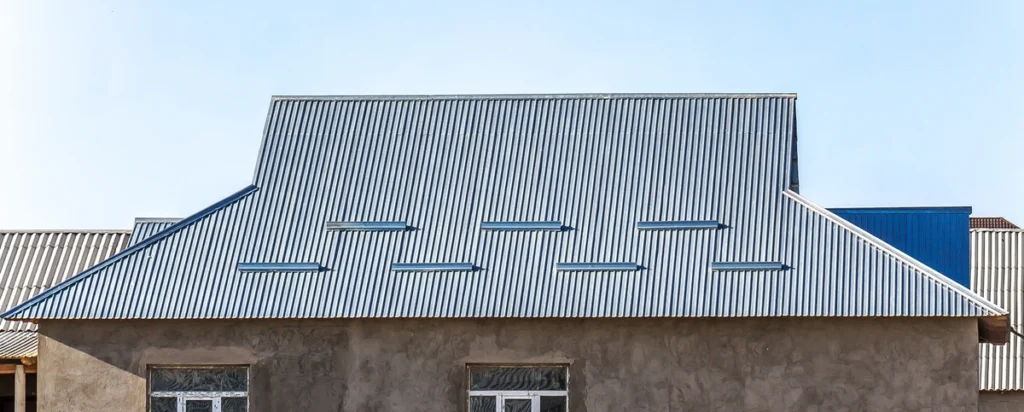
Metal roofing offers numerous benefits and advantages compared to other roofing materials. One of the most significant advantages is their longevity, with many metal roofs lasting up to 70 years or more.
In addition to durability, metal roofs are also incredibly energy-efficient. Reflecting much of the sun’s heat rather than absorbing it like asphalt shingles, metal panels can help lower your home’s cooling costs during hot summer months.
Another benefit of metal roofing is its low maintenance requirements.
Choosing a high-quality metal roof provides homeowners with peace of mind for decades while improving their home’s energy efficiency and reducing the need for costly repairs and replacements or a new roof.
Signs Your Metal Roof Needs Repair or Replacement
Metal roofs are known for their long lifespans, but like any roofing material, they can eventually wear out and require replacement.
Look for leaks inside your home and keep a lookout for cracks or holes in the roof. Make sure you don’t have any loose metal roofing panels.
Listen from within the house, too, as it is another subtle sign when raindrops landing on a metal roof will sound different than other roofing materials.
While metal roofs are built to last longer than other materials, such as asphalt roofs, shingles, and clay tiles, metal roofs last 40-50 years and start showing signs requiring repairs (and potential roof replacement).
Regular inspections by professionals are essential in prolonging a metal roof’s lifespan while ensuring proper maintenance avoids costly replacements due to severe damages later on.
Maintaining and Extending the Lifespan of Your Metal Roof
Proper maintenance is essential to extend the lifespan of your metal roof. Regular cleaning and inspections can prevent costly repairs or replacements down the line.
Another critical factor in maintaining a long-lasting metal roof is ensuring proper roof installation is done by an experienced roofing contractor. An improperly installed metal roof may result in severe damage during extreme weather conditions like hailstorms or strong winds.
By taking preventative measures such as regular maintenance check-ups on an existing roof, homeowners can enjoy their durable new metal roofs for decades longer than traditional asphalt shingles would last.
Conclusion
In conclusion, while the average lifespan of a metal roofing system ranges between 40 to 70 years, factors such as material and conditions can affect its durability. However, choosing a high-quality metal roofing system installed by a professional roofing contractor can significantly reduce the need for repairs or replacement in the long run.
With their energy efficiency, low maintenance requirements, and durability against extreme weather conditions, metal roofs are an excellent choice for any homeowner looking for a durable, safe roofing option.

